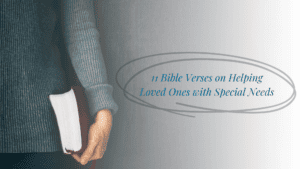The Hospital and The Manor
If there was one vastly underestimated resident at The Manor, it was Will, the doctor with Down syndrome.
I first met Dr. Will when I was thirteen. Occasionally, I would accompany my mother to The Manor, where he lived. There, I would be given a volunteer vest and either sent down the women’s wing with an ice bucket and scoop or stationed in the kitchen to help serve lunch.
My mother became the administrator of The Manor, an assisted living center, after having spent much of her time working for Kentucky’s famous Western State Hospital. At my elementary school, playground gossip revealed that Western State was a haunted asylum for the criminally insane. Depending on which 9-year-old you asked, my mother was either “crazy” or “ultra-cool” for working there.
Horror Stories
The characters of Western State stories sounded like those only found in dark comic books, horror movies, or war films.
For example, there was the story of the rail-thin patient with superhuman-like strength. He could break through thick restraint using only his teeth. There were the two patients who both believed they were God, and upon encountering one another, proceeded to call fire and brimstone down on the other for being blasphemous. There was also the strikingly beautiful woman who had survived the holocaust. She wasn’t allowed to have paper or books, because she would frantically eat them in a misguided attempt to hide them from the Nazis.
Despite all the 3rd-grade street cred I received from having an “ultra-cool” mom, my first perceptions of adults with special needs were that they were society’s abnormalities. Sadly, I was led to the same misconceptions as most people who are unfamiliar with the special needs community:
They are abnormal, unpredictable, tragic, and even dangerous. Thankfully, Will was there to show me how wrong I was.
Breaking the Stigma
Fortunately for me, years later, my mother took a new position at The Manor, where I was introduced to new stories, first-hand. These stories, and the people I experienced, washed away all the skepticism and fear I previously had concerning those with special needs.
My favorite patient was one who wandered the halls of The Manor in a crisp white lab coat, scrubs, and a nametag that read Dr. Will.
Before Will, I had never met an adult with Down syndrome. This wasn’t an unusual thing, given that the life expectancy for those with Down syndrome, at the time, was only 47 years. Despite having multiple health issues related to having Down syndrome, Dr. Will was approaching his fifties with an abundance of energy and joy.
What I recall of Dr. Will was that he was always smiling, hugging people, and telling them he loved him. He was also good at making my mother laugh. I recall an afternoon when I sat in my mother’s office and Will passed by her door. He stopped on the threshold and waited for her to look at him. When she did, he shook his behind before running off, smiling like he had pulled off the greatest prank of all time.
Recently, I sat down with my mother over a video chat and asked her what she remembered about Will. At the mention of his name, a soft smile spread over her face. I’ve seen her make similar expressions when talking about her grandchildren.
“He was precious.” She began. “If you asked him how old he was, he would reply ‘six,’ and every birthday he had was received with child-like excitement. He loved celebrating.”
“He also loved ink pens! If one went missing, we knew exactly where to find it. One time, he swiped all the pens from the front desk and tried to flush them down the toilet.” she laughed in remembrance. She said he also loved to swipe sweets, which he wasn’t allowed to have much of since he also had diabetes.
“But he had a very strong conscience about what was right and wrong.” She attributed it to his having great parents. “If you asked him, ‘Will, did you steal the ink pen?’ and he didn’t do it, he would look you in the eye and deny it. But if he had stolen it, he would hang his head and say, ‘Pweese.'” She said his heart-crushing response to being guilty made it impossible to stay upset with him for long.
She also explained how he came to be known as Dr. Will. “He was fascinated with scrubs— name tags too! —so the staff eventually hooked him up with his own set.” She said he was also a favorite among other residences, many of whom were once caretakers themselves. “He became everyone’s child, and they looked out for him like he was their own.”
Bridging the Gap
She also recalled how Will managed to bridge the gap between skeptics and patients.
“Many people were weirded out by being around people with disabilities. They wouldn’t know what to expect or how to react, but then you’d bring Will into the picture– he’d melt their heart.”
When volunteers and visitors arrived at the Manor, Will was the first to greet them; he was the one to hug them goodbye and tell them they were loved. When they returned, he knew them, right away.
Maybe Dr. Will didn’t have an MD, but he had patients, those who came into The Manor with hearts that needed healing from their misconceptions about those with special needs.
By witnessing Dr. Will at work, many people learned that the guidelines for understanding and interacting with those with special needs are simple:
They are human, just like you and me.
They have feelings, fears, hopes, and dreams. They desire and deserve patience, love, and community just as much as any other person in the world. They have impact and when we reject them from our lives, we are left misguided and incomplete.
Recently, I learned that, in the United States, around 67% of children with Down syndrome are aborted. In some countries, every child with Down syndrome is aborted.
That means that, in some places, every single Dr. Will is denied the right to life, and millions of people are deprived of his love.
The reasons for this response to the diagnose are seemingly compassionate, but definitely misguided:
They’ll never have the same quality of life as a “normal” person.
They’ll never be able to live on their own.
And the big one:
There aren’t enough resources to provide them with proper care.
As demonstrated by the work of Dr. Will, the biggest hurdle that the special needs community is forced to face is fear; more specifically, our fear of them. The fear that we, or others, won’t accept them. The fear that they can’t handle the struggles that will be presented to them in their everyday lives.
The truth is, if we choose to live in open-minded hope, rather than in fear of what we don’t understand, we bring healing and growth to ourselves and others, just as Dr. Will did throughout his life.
…
*Names of people and the assisted living facility have been changed for privacy purposes.




















